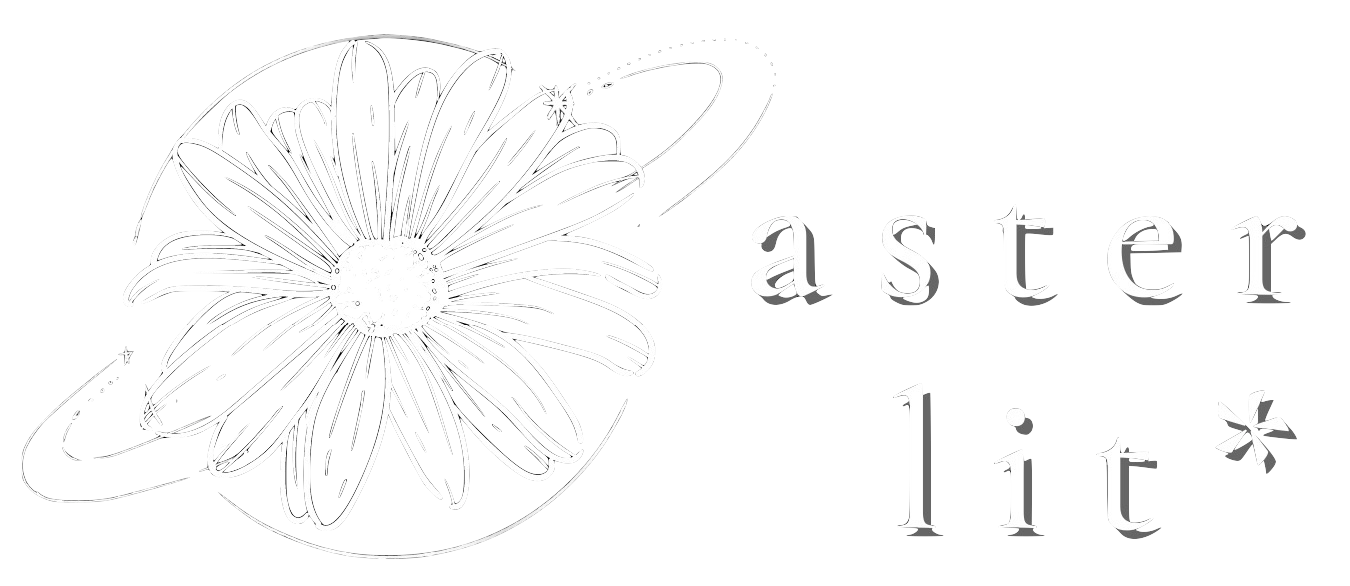
Aster Lit: Meridian
Issue 14—Fall 2025
The Philosophy of Chess
Davin Faris, United States
“Is this a joke?” Grace said. “You must be joking.”
The kitchen was still a mess. She’d meant to tidy up yesterday, after she landed, but all the time had scurried away. Newspapers were still piled on the counter, beside empty cans and egg cartons. Junk mail cascaded into a corner. Half a dozen mugs held dried-out tea bags, desiccated corpses of chai and earl grey. The garden out front was all but lost to the weeds.
“No,” her father said, in his most professorial voice. “I’m perfectly serious.”
On the table between them, a chess set was mid-play, heavy marble pieces. A bishop and knight conspired menacingly in her father’s corner. One of the two would claim her queen unless she intervened. What a god-awful game.
“You can’t.”
“Why not?” Carefully, he moved a pawn.
“It isn’t—” The right words evaded her, as ever. “You’re not sick.”
“Your move.” As she withdrew her queen to a safer distance, he added, “I am sick. You know that.”
“You’re not sick sick.”
The crucial nature of this distinction seemed to escape him. His pawn advanced another square, threatening one of her knights.
“Sweetheart,” he said. “Look at me.”
His expression made her feel like a child again, both patronized and cared for. His face grooved, sagging. Eyes gray. White stubble, veins swimming under the skin. Somehow he’d grown old. And yes, the tremors in his jaw and hands, the flashes of pain.
On the board, the pieces mocked her, until she moved the queen again. He’d tried to teach her more as a child, gambits and positions like the vocabulary of a dead language. The Scandinavian Defense, the Reti Opening. Unbearable fucking game. Even now, he always won.
“In the Phaedo, Socrates says death is the ultimate fulfillment of philosophy. He says the wise mind regards dying as its goal. Finally—liberation from the flesh.”
Another lecture, his preferred method of discourse. When he’d retired from the college, Grace’s mother had joked that it would be this way. No outlet for the pedantry anymore. But these gambits she knew better.
“Not the same,” she said. “They’d already condemned him to death. He was about to drink the poison!”
He captured her knight, an obvious error on her part, smiling sadly. “Everyone’s condemned to death. Haven’t you heard?”
“It isn’t legal. Socrates says that, doesn’t he?”
“Assisted suicide was legalized in Switzerland in the nineteen-forties. We’re just a little behind the times.”
Behind her, the clock on the wall ticked, ticked. Strange to imagine it might outlive her father. And what about those newspapers, or the dried-up teabags?
“How?” she asked.
“Oh, you know. Different schools of thought. Some say inhaling helium. One of Justina’s friends—the music teacher, remember? She says it’s best to take lots of MDMA, then a strong opiate, to overdose.”
The absurdity almost made her laugh. This wasn’t real, it wasn’t happening. It had been the same after her mother died, what, six years ago now. The mundane continuation of everything became a kind of joke. You just kept moving pieces around the board, even if you’d forgotten what they were for.
“MDMA?” she said, because she had to say something.
“Ecstasy. Very popular with the hippies, in their day.”
She nearly asked if that was safe, mixing it with other drugs. Safe—funny, again. She should go on tour.
“If you do it, aren’t you giving up more time? Memories?”
“Of course.”
“How is that fair, then?”
Instead of answering, he stood with a sigh, trundling his walker toward the sink. She could leave, right now. Walk out the door, ask him to mail her stuff, go home to Evan and the girls. She could hold her father close and beg. She could argue ontology. Camus had written about suicide, Nietzsche defended its rationality, but what did the philosophers know, anyway? Who the hell had given them the keys to the soul?
A parent’s whole job was not to leave. She’d learned that. As long as there was a choice, you stayed, you gave everything to stay.
Her father returned with a mug of tea that had finished steeping, unsteady in his hand. The doctors agreed the Parkinson’s wouldn’t kill him, at this rate. He’d wanted her to bring the girls with her, but they were in school. They’d come over the summer, she’d assured him.
What was it Socrates had said, when he was about to drink the poison? She hadn’t read any Plato in years. A comment on the immortal soul, maybe. Her father would know, but to ask was unbearable just now. It was a painful process for him to sit down again. The clock on the wall threw seconds away, carelessly.
“I don’t want you to,” she said.
“I know.” He sipped at the tea, his hand on the mug full of veins and cords. “I’m tired, sweetheart. I’m just tired. She’s been gone a long time.”
She reached out to take his hand. Warm, solid. Around them, the kitchen slowly crumbled. He’d been alone, before she arrived yesterday, of course. And after she left, it would be quiet here again. Sometimes the world gave you things for the sole purpose of taking them away. Ha. There was philosophy for you.
“Your move,” he said, like an apology.
As she lifted her queen, her own hands trembled, a mockery of his disease. You chose your moves—that was the point of things. You played. There were rules, clear and simple.
One of his knights had strayed too far from the herd, and she captured it.
“Very good,” he said, almost a whisper.
She was crying now, not that it mattered. Fuck Socrates and his death-wishes, the marble chess set, the merciless clock. Fuck the steaming mug of tea. The tears. Fuck him for leaving—
He touched her arm gently.
They sat like that for a long time, before continuing their game.
END
Davin Faris is a climate organizer, writer, and student at St. John's College, in Annapolis, Maryland. His writing has been featured by the New York Times, Patagonia Magazine, Slingshot Collective, Livina Press, and others. He is a submission reader and book reviewer for ONLY POEMS.
